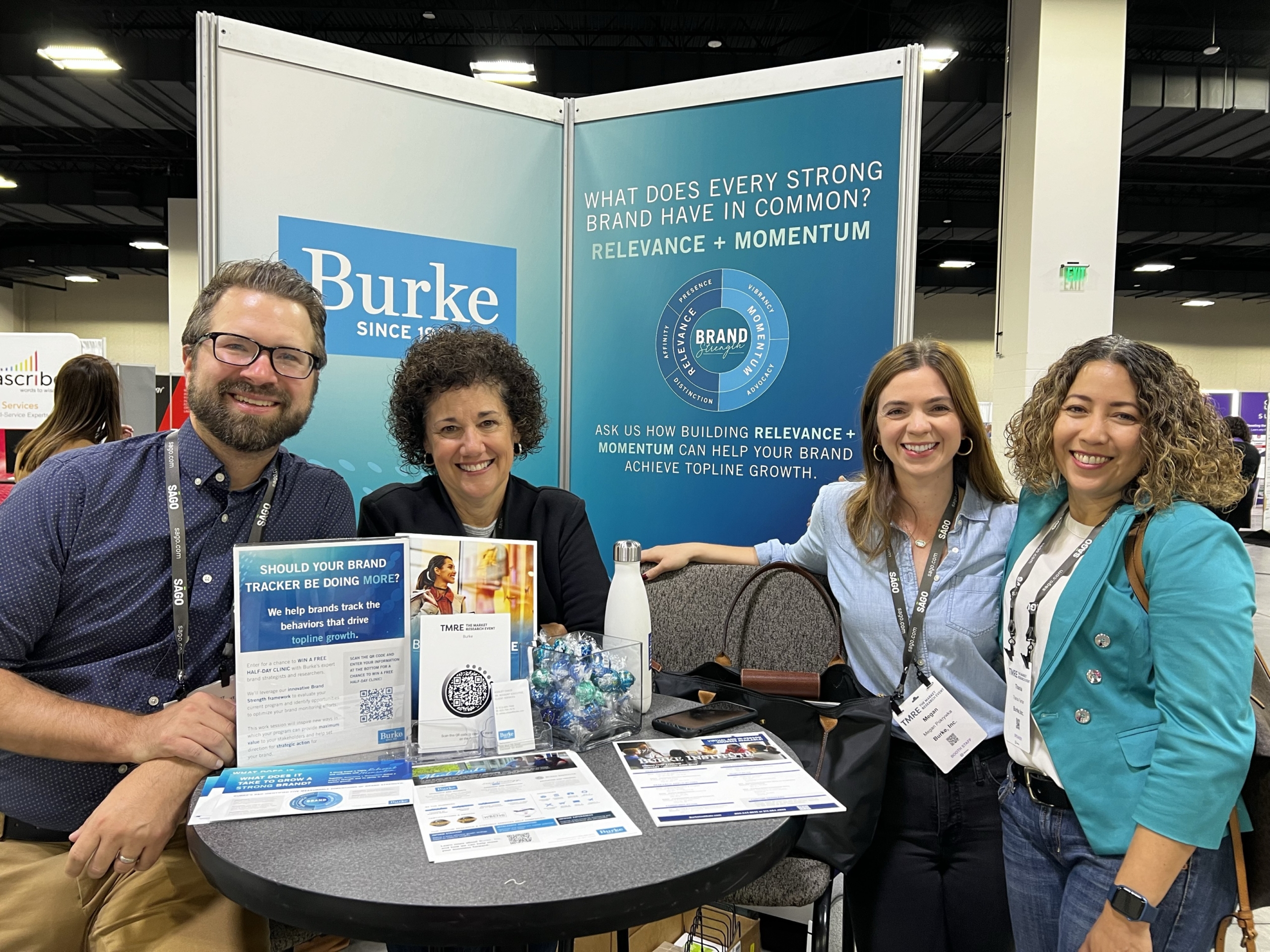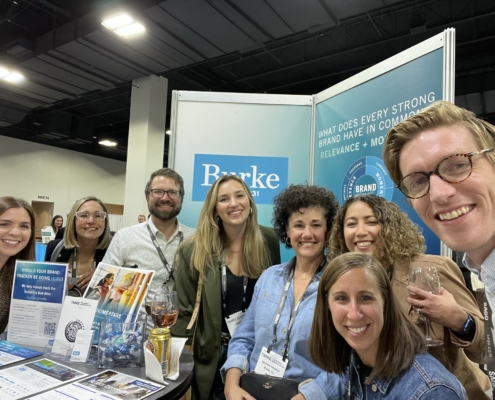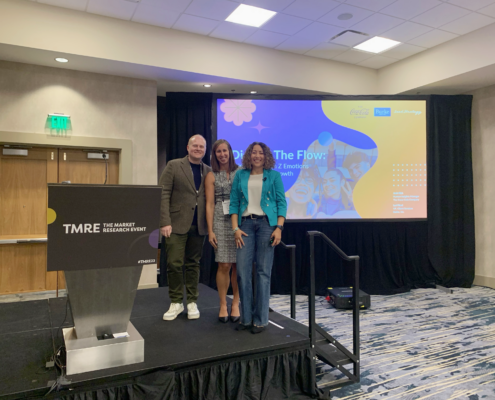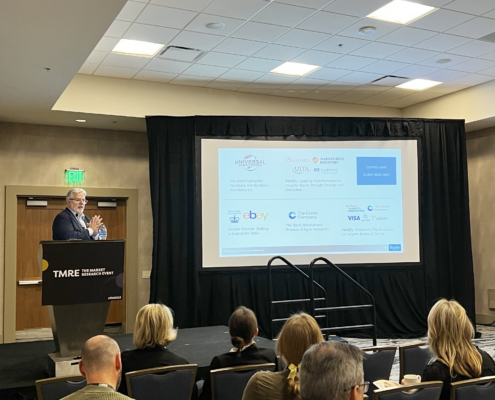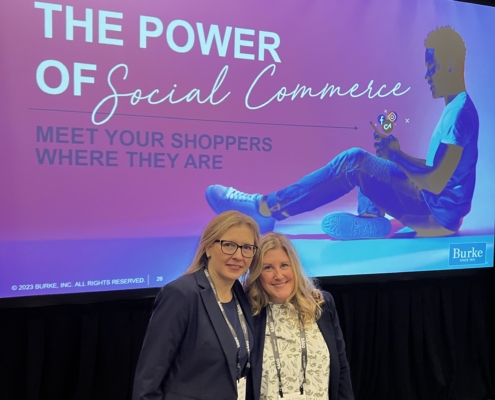
Five Key Takeaways From TMRE 2023
by Jeremy Cochran
Recently, we joined marketing research and insights peers in Denver at The Market Research Event (TMRE)! It was a fulfilling three days full of facilitating tracks, presenting dynamic work, attending inspiring sessions, and continuing meaningful industry connections.
The following five themes encapsulate our team’s take on key insights and discussions that emerged from this year’s TMRE conference that can serve as valuable focal points for future strategies and initiatives within the market research industry.
TMRE Key Theme #1
AI Integration
AI was (unsurprisingly) prominently featured at TMRE, but conversations have shifted from possibilities to practical applications. The potential for AI is boundless, but right now common uses include text/video analytics, knowledge management, and trend prediction. The main concerns for users of generative AI remain data security and transparency in how the tools operate.
What Does This TMRE Insight Mean?
AI’s initial uses in Insights are making it easier to find signals among massive noise (open-ended text, previous studies, social media, etc.), so insights teams should expect to see more offerings for that purpose. Data security conversations should remain front and center as we learn more about the power of these tools.
TMRE Key Theme #2
Emotion-Centric Insights
Perhaps countering the emphasis on tech, emotions are having a “moment” as some researchers are exploring different ways of identifying their impact on consumer behavior. Presentations at TMRE by General Mills and L’Oreal demonstrated the importance of focusing on emotional moments for deeper insights. Some tools on display at TMRE highlighted the use of AI for sentiment analysis of text.
What Does This TMRE Insight Mean?
Identifying emotional drivers of decisions – both positive and negative – continues to be important, and can help insights teams better understand consumers, yielding richer insights. Watch for new technology and tools to emerge that will better illuminate consumer emotions, aiding our ability to more efficiently explore their increasingly important impact.
TMRE Key Theme #3
Consumer Psychology
A few TMRE presentations highlighted how researchers are applying psychological frameworks to understand consumer behavior. A TMRE presentation by Microsoft showed how looking at product design through the perspective of Kahneman’s Peak-End Rule provided a path to designing memorable products that built equity for the brand.
What Does This TMRE Insight Mean?
Behavioral economic frameworks are not new, but teams are finding innovative ways of applying these frameworks to insights in more tangible ways.
TMRE Key Theme #4
Doing More with Less
Client-side insights teams are being empowered (or forced) to provide effective insights with minimal budget or shortened timeframes. The preponderance of DIY platforms and agile solutions has made insights-on-a-budget more mainstream. A few TMRE presentations highlighted how these “small, but mighty” insights teams found ways of working that help amplify their impact, for example through collaboration across their organization.
What Does This TMRE Insight Mean?
Insights solutions must always take efficiency into account and work to find the right insights in the right timeframe. This highlights a key benefit that clients see in exploring AI tools, as they can provide new, agile ways to extract insights – and, more easily democratize them.
TMRE Key Theme #5
Qualitative at Scale
AI capabilities are shifting the thinking around qualitative research. With AI-assisted moderation and summarization, qualitative research has the potential to be conducted on a grander scale than previously imagined.
What Does This TMRE Insight Mean?
Most insights professionals are familiar with the benefits of qualitative research—personalized insights, exploration of emotions, and deeper conversation. In the near future, we may be able to achieve these benefits on a much larger scale, similar to quantitative levels, making qualitative methods more widely applicable and adoptable.

Jeremy is Burke’s Research and Development Manager. As an analytics and strategy leader with over 15 years of experience in the insights industry, Jeremy has a passion for finding new ways to solve problems and gain insights.
Interested in reading more? Check out more from Jeremy:
You Can’t Build a New Brand With Old Tools
Key Takeaways from IIEX North American 2023
Healthcare Innovation: Current Challenges and Future Outlook
Making it Right: The Importance of Issue Resolution to E-Commerce Consumers
Digital Healthcare Tools & Data Security: Are Consumers Concerned?
As always, you can follow Burke, Inc. on our LinkedIn, Twitter, Facebook and Instagram pages.


